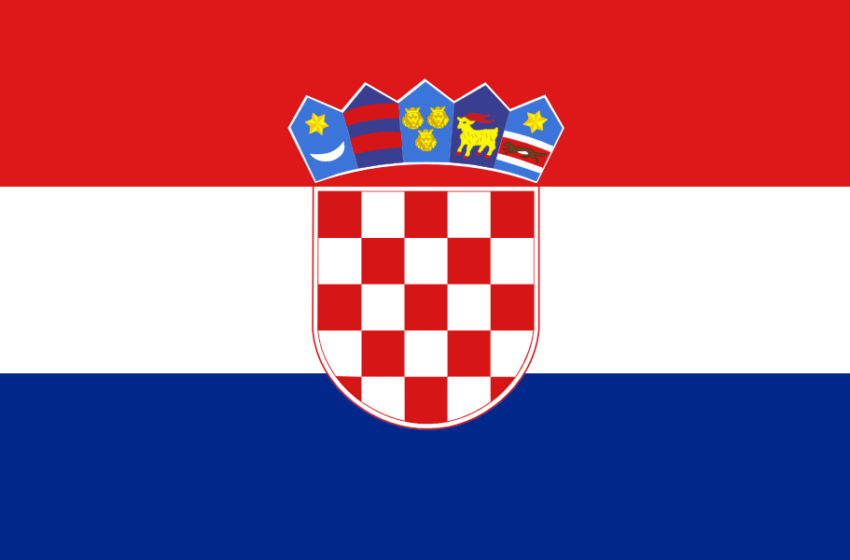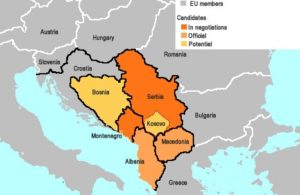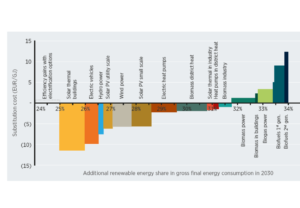Western Balkans Sustainable Energy Fund Supports Biomass instead of Solar Thermal
August 27, 2013
Since Croatia joined the European Union (EU) in July 2013, the number of non-EU members in Southeast Europe has shrunk yet again. What’s more: The remaining countries are on their way to becoming part of the EU as well, which has them vowing to renew their energy systems and make them more efficient. The photo shows an installation in Croatia, at which a PV module supplies the electricity needed for the pump of the solar system.
Already in April 2009, the European Bank for Reconstruction and Development (EBRD) launched its Western Balkans Sustainable Energy Financing Facility (WeBSEFF). The fund amounted to EUR 60 million and supported eight banks in Bosnia and Herzegovina, FYR Macedonia and Serbia to grant industrial enterprises and other companies in the commercial sector favourable rates for loans of up to EUR 2 million in the area of energy efficiency measures and small renewable energy projects, including solar thermal energy installations for heating and cooling.
“Until the end of the year, we will have finished the last projects of the primary WeBSEFF fund,” says Daniela Diedrich-Ristic, Associate Manager for Energy Efficiency & Climate Change at the EBRD in London. “At the same time, we will start the follow-up fund WeBSEFF II, which amounts to EUR 75 million. Already at the beginning of July, we granted a first WeBSEFF II credit line of EUR 5 million to the Raiffeisen Bank Bosnia and Herzegovina (BiH).” According to Diedrich-Ristic, the EBRD is currently negotiating with other banks in neighbouring countries. When all contracts are finalised, the WeBSEFF II will likely be officially launched sometime during the fourth quarter this year. The established WeBSEFF web page at http://www.webseff.com will continue to be online until being replaced by the WeBSEFF II web page.
Compared to its predecessor, the WeBSEFF II has undergone some fundamental changes. In terms of countries, the programme has been extended to Albania, Croatia, Kosovo and Montenegro. But whether companies, for example in Albania, will in fact be eligible to receive loans depends on the participation of Albanian banks in the WeBSEFF II. From now on, also public institutions or energy service companies (ESCOs) will be able to get funding in addition to private firms. And while in the frame of WeBSEFF I, a successful finished project could receive 15% to 20% of the loan amount as an incentive grant, the WeBSEFF II offers private companies between 5% and 10% and public institutions between 10% and 15%. The incentive grant is to be handed out after an independent consultant has confirmed that the project was indeed realised as planned.
“WeBSEFF was a great success despite its start during a recession,” Edward La Farge says. The Regional Manager of a Zagreb-based consultancy for sustainable energy, E3 International, is satisfied that “in a region in which for historic reasons energy prices are among the lowest in Europe, all the money has been committed”. According to him, the average payback time from savings of those loans was just over 3 years. “And not a single WeBSEFF project has failed,” La Farge says. According to the regional manager, most of the WeBSEFF investments went into state-of-the-art technologies to significantly reduce energy consumption and save a total of 466,350 MWh of energy and 132,885 tonnes of CO2 emissions annually.
Thus far, solar thermal installations have not become as widespread as they could be, La Farge says, with most of the money-borrowing companies switching from fossil fuels to biomass to either power production lines or run heating systems. For example, wood chips have been popular in Bosnia and Herzegovina. La Farge expects a big chunk of the WeBSEFF II loans to be granted in Croatia, because “our country has set forth the most coherent regulatory and legislative framework to support renewable energy investments and an ambitious target for the share of renewable energy until 2020.”
According to Aleksandar Kovačević, Manager for SMEs at Banca Intesa in Belgrade, Serbia, his credit institute has not yet financed any solar thermal energy project, although solar collectors could be useful in the Western Balkans: “Especially in the southern parts of the countries, there is a good chance to realise such projects,” he says, adding that there have been a couple of projects in preparation in Serbia, which, however, have not been realised up to now.
EBRD Manager Diedrich-Ristic also expects the number of realised solar thermal facilities in the framework of WeBSEFF II to be higher than during WeBSEFF. “Especially now, with Croatia taking part, there are a lot of touristic buildings, such as hotels or guesthouses, as potential borrowers. It would really make sense for them to combine energy efficiency measures and solar collectors for water heating and cooling,” she says.
More information:
Western Balkans Sustainable Energy Financing Facility: http://www.webseff.com
European Bank for Reconstruction and Development: http://www.ebrd.com
Raiffeisen Bank dd Bosna i Hercegovina: http://www.raiffeisenbank.ba
E3 international: http://www.eeeinternational.com
Banca Intesa: http://www.bancaintesa.rs


